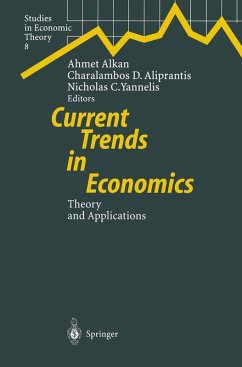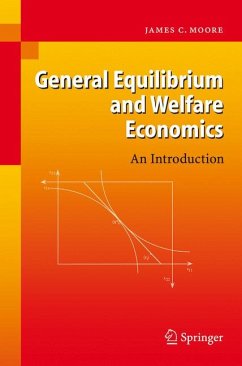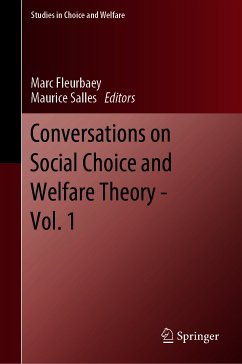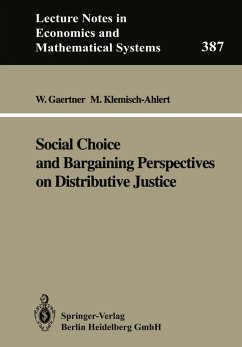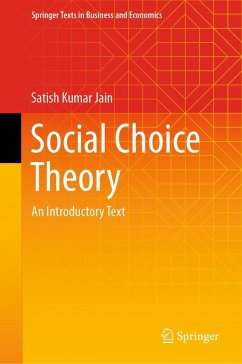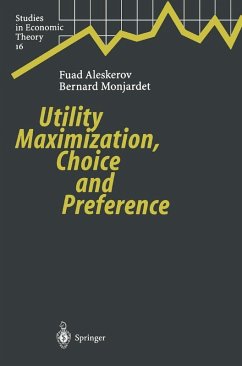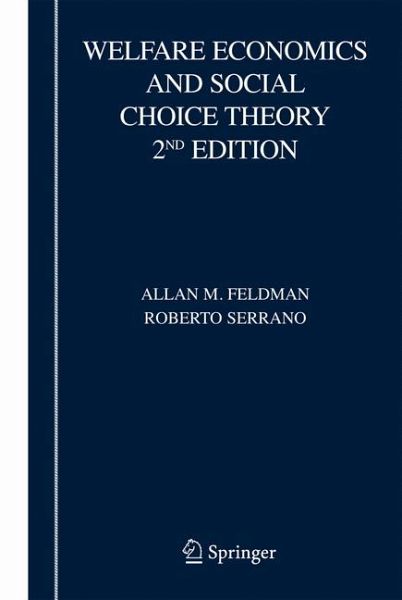
Welfare Economics and Social Choice Theory (eBook, PDF)
Versandkostenfrei!
Sofort per Download lieferbar
136,95 €
inkl. MwSt.
Weitere Ausgaben:

PAYBACK Punkte
68 °P sammeln!
This book covers the main topics of welfare economics - general equilibrium models of exchange and production, Pareto optimality, un certainty, externalities and public goods - and some of the major topics of social choice theory - compensation criteria, fairness, voting. Arrow's Theorem, and the theory of implementation. The underlying question is this: "Is a particular economic or voting mechanism good or bad for society?" Welfare economics is mainly about whether the market mechanism is good or bad; social choice is largely about whether voting mechanisms, or other more abstract mechanisms,...
This book covers the main topics of welfare economics - general equilibrium models of exchange and production, Pareto optimality, un certainty, externalities and public goods - and some of the major topics of social choice theory - compensation criteria, fairness, voting. Arrow's Theorem, and the theory of implementation. The underlying question is this: "Is a particular economic or voting mechanism good or bad for society?" Welfare economics is mainly about whether the market mechanism is good or bad; social choice is largely about whether voting mechanisms, or other more abstract mechanisms, can improve upon the results of the market. This second edition updates the material of the first, written by Allan Feldman. It incorporates new sections to existing first-edition chapters, and it includes several new ones. Chapters 4, 6, 11, 15 and 16 are new, added in this edition. The first edition of the book grew out of an undergraduate welfare economics course at Brown University. The book is intended for the undergraduate student who has some prior familiarity with microeconomics. However, the book is also useful for graduate students and professionals, economists and non-economists, who want an overview of welfare and social choice results unburdened by detail and mathematical complexity. Welfare economics and social choice both probably suffer from ex cessively technical treatments in professional journals and monographs.
Dieser Download kann aus rechtlichen Gründen nur mit Rechnungsadresse in A, B, BG, CY, CZ, D, DK, EW, E, FIN, F, GR, HR, H, IRL, I, LT, L, LR, M, NL, PL, P, R, S, SLO, SK ausgeliefert werden.




